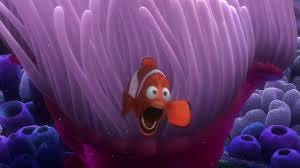Since the “C” word has quashed our ability to see family members in person, my son has been participating in a daily, hour-long Zoom call with my dad, during which “Baba” reads him detailed, epic, adult graphic-novels about the greek gods. I know what you’re thinking: “How funny, the violent world of the Olympians is my preschooler’s happy place too!!” This child, who will not watch five minutes of friggin’ Muppets Christmas Carol (objectively the pinnacle of children’s cinema), has clocked hours of rapt listening to a haltingly translated Italian book about Theseus (you know, the dude who killed the Minotaur). I walked by last week to overhear my cupid-faced four-year-old, who is a afraid of going to the bathroom alone and refers to himself in the third person as “baby kitty,” utter the phrase “That’s not nice Zeus skinned his grandson!”

So when I noticed that he was talking a lot about death in these past weeks, I thought, “fine, maybe we need to retire the Prometheus-bird-liver-eating story from the repertoire.” But, as I started to hear from other parents, I realized we were not alone. A lot of kids are hopped up on death these past few months, and I promise you, they do not all know that Hephaestus split Zeus’ skull open with an axe to birth the war goddess Athena (an actual dinner table conversation). My friend’s daughter keeps talking about her non-existent dead baby brother. Kids around the world who never contemplated who dies and how and when are now asking all of those questions, all at once, probably in the middle of a parent’s conference call.
No, it’s not just my kid and it’s not just now. Children go through all kinds of normal obsessions with mortality and grieve in sometimes surprising ways. I once worked with a 10-year-old who was so hard-hit by Michael Jackson’s death (he did not, beforehand, have any clue who Michael Jackson was) that he couldn’t sleep at night. Kids want to know about death. We can’t avoid it. But it’s not always easy to know how to talk about it. Whether we’re the parent who insists that Nemo’s mom is just “sleeping” or more in the “there is no such thing as a soul - you’re just gone” camp, guiding our children through the current climate of daily death tolls and “we can’t see Grammy cause we might kill her” is a lot to tackle.

As a school psychologist, I usually feel comfortable talking to kids about death. Kids need us to help them explore death and dying, and we can’t do that by pussyfooting around. But this is some next-level shit. Fortunately, I happen to have a close friend in the business. Kate Sherwood, who in addition to being the godmother of my lil’ Trojan War-head (see above), and perhaps the funniest person I know, is also a long-time School Social Worker and now a Family Services Coordinator at the Dougy Center for Grieving Families and Children in Portland, Oregon.

Honest-to-god photo of me and Kate yes-anding the shit out of each other in our college improv “troupe.”
The Dougy Center has trained over 500 programs worldwide on how to provide services and supports for grieving families and kids. The place is so damn special you get tingles up your spine when you walk through the door. The wall of family photos and the play hospital room, complete with real-life equipment, will bring you to your knees. Kate counsels families who have recently experienced a death, and runs therapeutic groups with grieving preschoolers to adults. So I called her up, as I often do, to pick her beautiful brain.
Me: Can you help us understand how kids are processing death right now, in the age of COVID?
I think we all need to keep in mind how much adults are talking, thinking, and reading about death right now. Kids are just saying what they’re experiencing, which is what we’re all experiencing. They just don’t have a filter like we do. Yes there’s probably a massive uptick in kids talking about death but it’s not because anyone’s doing anything wrong or kids are pathological. That’s just where we’re at.
At the Dougy Center, we have skeletons, urns, and coffins for kids to play with. Just like you or I might write in a journal or call a friend, kids are incorporating it all through play. The fact that they’re doing this is a positive thing. They don’t know that it stresses you out.
Me: How do I answer my kid’s questions about death?
Talking about death can be really hard. Think about how many times you have to tell your child how to brush their teeth when they’re still learning. They’re gonna ask you again. That’s how kids process things. Over and over.
Introduce these concepts in ways that feel right for you and your family. Start with a short, simple explanation about death, in language children can understand. Let their questions guide what else to share. It’s less about the answer and more about that the kid has that question. Reflecting back “you’re really curious about what will happen if I die” or “you’re really wondering about that” is okay. Some days we don’t have the energy to go into a philosophical conversation about death. You can say “I don’t know how to answer that question right now, but I can answer this part of it” or "let me think about that question and I will get back to you."
Normalize their questions (“lots of kids have questions about death”). This lets them know it’s something they can talk more with you about.
Me: How do I talk to them about my own death?
Acknowledge what is true. “If I died there would be people who would take care of you. But I exercise, and eat good food, I go to the doctor if I get sick, I get hugs from you, and those are all things that help people live long and healthy lives.” You’re not saying “I’m gonna live until I’m old,” but you’re also not saying “tomorrow I could be gone.”
Sometimes you want a third party. Sesame Street did a great episode on COVID. There are lots of picture books that do a nice job of talking about life and death, like My Grief is a Mess, The Goodbye Book, and When Dinosaurs Die.
Me: How do I help a child grieve the death of a family or community member?
If they’re old enough to talk, they’re old enough to be able to grieve verbally. We recommend telling them as soon as possible, so that they hear it from someone they trust rather than from other kids or social media.
Tell them, in words that they can understand, in a simple way. Stay away from all those “pass away,” “we lost her,” “in a better place” words that confuse kids. I can’t tell you how many kids say that they’re still looking for their mom, cause she’s “lost.” Nine out of ten times, if you leave holes in the story, kids will fill it in with it being their fault. Name it. As opposed to saying "they got sick" you can say "they had cancer" or “their body stopped working.” As adults we think we’ll get stuck in this death cycle with a kid, but once we discuss it, we can actually get back to the real person and how they lived.
You don’t have to have these conversations all by yourself. Regardless of where you live, you can always call the Dougy Center (503-775-5683 or 866-775-5683) and we can support you and connect you to resources.
Me: Thank you Kate! I can’t wait to tackle you with love when, as the kids say “the germs go away.”
-Feeling generous? Donate to the Dougy Center - they are doing crazy good work for a lot of people right now.
-Check out the Dougy Center’s amazing COVID-19 Resources page with tipsheets (including this one on what to say when someone has died of COVID), podcasts, and webinars on everything from talking to kids about a COVID-related death to grieving during social distancing.
-If you or your children need additional support, these two crisis lines are available 24/7: National Crisis Line: 1-800-273-8255 Crisis Text Line: text Hello to 741741.
-Got older kids? This is a great read on why it’s okay (and essential) to talk to teens about death.




Thank you. Loved the line ‘I can answer this part of it’ So helpful.